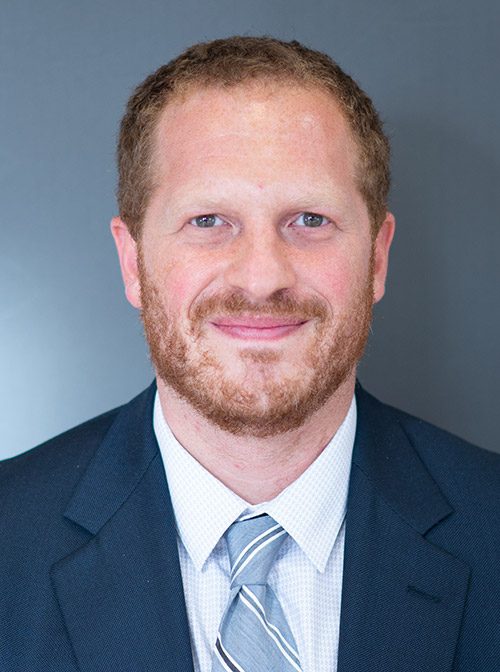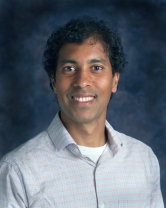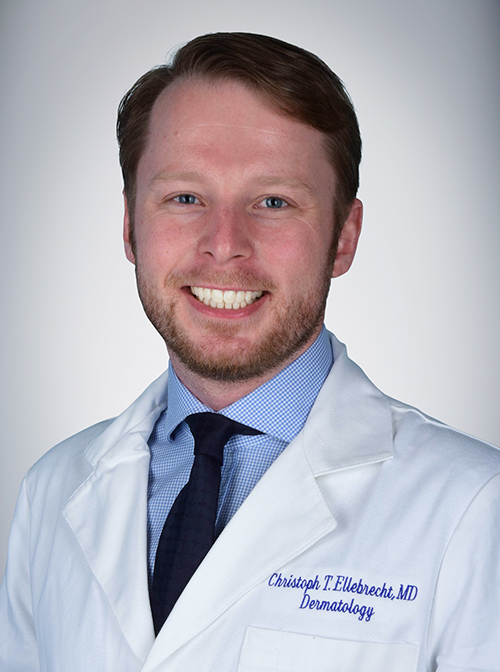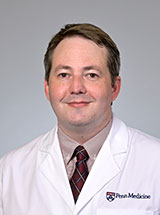Pilot Award Grantees
Colton Center for Autoimmunity awards grants to four Penn projects
The Colton Center for Autoimmunity at Penn has awarded funding to four promising research projects aimed at developing novel diagnostics and therapeutic practices for autoimmune disease by illuminating its underlying mechanisms.
This year’s pilot grant awardees are:
- Profile and impact of autoantibodies in hospitalized and non-hospitalized patients with post-acute
 sequelae of SARS-CoV-2 infection: Benjamin Abramoff, Assistant Professor of Clinical
sequelae of SARS-CoV-2 infection: Benjamin Abramoff, Assistant Professor of Clinical  Physical Medicine and Rehabilitation, will lead a team in the analysis of autoantibody and ACA profiles and neuro-antibodies in previously hospitalized and non-hospitalized patients, comparing these profiles to ongoing symptoms reported by patients to evaluate the chronic contribution of autoantibodies and ACA to post-acute sequelae of SARS-CoV-2 infection (PASC).
Physical Medicine and Rehabilitation, will lead a team in the analysis of autoantibody and ACA profiles and neuro-antibodies in previously hospitalized and non-hospitalized patients, comparing these profiles to ongoing symptoms reported by patients to evaluate the chronic contribution of autoantibodies and ACA to post-acute sequelae of SARS-CoV-2 infection (PASC). - Development of an Engineered T cell Immunotherapy as a Curative Therapy for Autoimmune
 Thrombotic Thrombocytopenic Purpura: Vijay Bhoj, Assistant Professor of Pathology and Laboratory Medicine, will test the hypothesis that Autoimmune Thrombotic Thrombocytopenic Purpura (aTTP), a disease caused by antibodies that inhibit the enzyme ADAMTS13, can be treated with the stringent depletion of ADAMTS13-specific B cells. His team proposes to develop an engineered T-cell liked therapy, termed chimeric autoimmune antibody receptors (CAARs).
Thrombotic Thrombocytopenic Purpura: Vijay Bhoj, Assistant Professor of Pathology and Laboratory Medicine, will test the hypothesis that Autoimmune Thrombotic Thrombocytopenic Purpura (aTTP), a disease caused by antibodies that inhibit the enzyme ADAMTS13, can be treated with the stringent depletion of ADAMTS13-specific B cells. His team proposes to develop an engineered T-cell liked therapy, termed chimeric autoimmune antibody receptors (CAARs). - In vivo target identification and machine-learning validation of autoimmune T cell tissue residence:
 Christoph Ellebrecht, Assistant Professor of Dermatology, will study autoimmune skin conditions driven by skin-infiltrating CD4+ or CD+ T lymphocytes thought to differentiate into non-circulating tissue resident memory (TRM) cells upon entering the skin niche11. The study proposes to uncover novel factors that support or oppose human T cell tissue residence and therefore to address a key mechanism of T cell mediated autoimmune disease etiology, which may establish a novel therapeutic approach to suppress and potentially eliminate TRM.
Christoph Ellebrecht, Assistant Professor of Dermatology, will study autoimmune skin conditions driven by skin-infiltrating CD4+ or CD+ T lymphocytes thought to differentiate into non-circulating tissue resident memory (TRM) cells upon entering the skin niche11. The study proposes to uncover novel factors that support or oppose human T cell tissue residence and therefore to address a key mechanism of T cell mediated autoimmune disease etiology, which may establish a novel therapeutic approach to suppress and potentially eliminate TRM. - Therapeutic targeting of nucleic acid sensors: Jonathan Miner, Associate Professor of Medicine, will
 develop therapies to target cystolic sensors of DNA and RNA, which have been implicated in a variety of autoimmune and inflammatory diseases. The study’s first aim is to create gene therapies for rare autoimmune diseases, with a secondary aim of developing small molecular inhibitors for both common and rare autoimmune disease.
develop therapies to target cystolic sensors of DNA and RNA, which have been implicated in a variety of autoimmune and inflammatory diseases. The study’s first aim is to create gene therapies for rare autoimmune diseases, with a secondary aim of developing small molecular inhibitors for both common and rare autoimmune disease.
According to the National Institutes for Health, approximately 24 million Americans suffer from autoimmune diseases, a highly varied set of conditions which are often poorly understood and difficult to diagnose. “Autoimmunity is a large topic, but we’re finally beginning to understand how the immune system works,” says Larry Jameson, Dean of the Perelman School of Medicine. “In some ways, it’s the final frontier.”
“We now have the ability to use our body’s own immune system as a drug,” explains John Wherry, Director of the Colton Center, Director of the Institute for Immunology, and Chair of the Department of Systems Pharmacology and Translational Therapeutics. “This is where the opportunity for the Colton Center comes at just the right time. One of the things this Center will allow us to do is dive deeper into the underlying mechanisms of autoimmunity, with a specific eye to how to turn those insights and those discoveries into new treatments and new therapies.”
Undertaking such high-risk, potentially transformative research would be impossible without the generosity of people like the Coltons. “Philanthropy is a catalyst,” explains Dean Jameson. “It really sparks new approaches that are often difficult to fund through traditional grant mechanisms to get that early preliminary data, to take on projects that really no one is interested in until they’re successful.”
“As a physician scientist, I’ve been able to see what a gift like the Coltons’ can do on a campus like ours,” remarks Peter Merkel, Chief of the Division of Rheumatology. “It allows us to take more chances. It allows us to do earlier stage science. It allows us to support junior investigators and new and novel ideas that don’t always get funded with a traditional grant approach. We were thrilled with the first round of Colton Center grants we reviewed. This is creative, incredible science, taking the great work that’s being done [in other fields] in new directions focused on autoimmunity.”
A second round of pilot grants will be awarded in 2023, with a request for proposals to go out in fall 2022.



